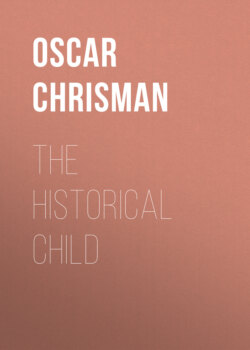Читать книгу The Historical Child - Oscar Chrisman - Страница 39
На сайте Литреса книга снята с продажи.
Child and Parent.
ОглавлениеTable of Contents
The Egyptians were very fond of their children. Even the most consequential pontiff did not affect indifference toward them. They cared for the children and did not permit the father to have any right over the life of his offspring. The punishment for child-murder was very severe. They did not take the life of the offender, but gave to him a punishment which would well portray to him the heinousness of the crime. In the case of the killing of a child, it was ordered that the corpse of the child be fastened to the neck of the parent offending, and for three entire days and nights was the embrace of the dead child to continue, under the watchful eyes of a public guard. The murder of a parent was considered the most wicked of all crimes. In this case the criminal was sentenced to be lacerated with sharpened reeds and after being thrown on thorns he was burnt to death. In case a pregnant woman was sentenced to death, the punishment did not take place till after the birth of the child, both because they thought it wrong to take the life of an innocent being and also they did not wish to deprive the father of the child, which might become his support in later life.
Children were taught to pay great respect to old age. The children's greatest duty was respect for and care of parents. This was just as binding among the upper classes as with the lower. This was carried up even to the very highest, as the sons of the king acted as fan-bearers to him, and they also walked on foot behind his chariot in triumphal processions.
